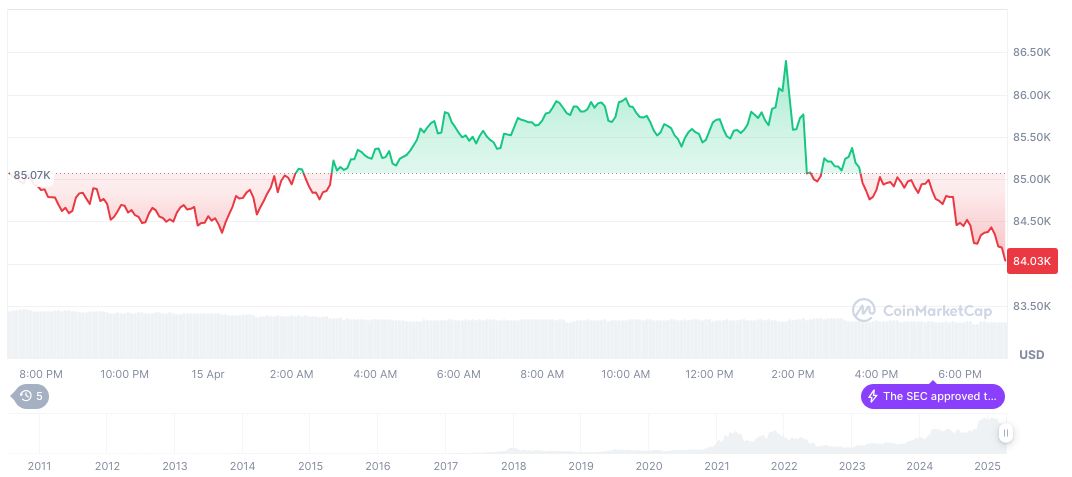- OKX expands to US with new exchange and CEO.
- Seamless migration planned for OKCoin customers.
- $500M DOJ settlement indicates regulatory compliance focus.
OKX, a leading global crypto exchange, launched its US service from San Jose on April 16, welcoming American users.
The expansion signifies OKX’s commitment to penetrating the US crypto market with trialed features and regulatory readiness.
OKX’s $500M DOJ Settlement Secures US Entry
OKX announced the official launch of its centralized crypto exchange and wallet in the United States, establishing a regional headquarters in San Jose, California. Roshan Robert has been appointed as the new US CEO, enhancing leadership amid the strategic entry. Existing OKCoin users will seamlessly integrate into OKX, while new customers can onboard in phases.
The launch offers US traders access to major cryptocurrencies, including Bitcoin and Ethereum, along with an anticipated full nationwide rollout later this year. OKX’s advanced compliance measures include enhanced KYC protocols and robust fraud detection, underpinning its reliable trading environment.
Market observers are closely watching the impact of this US entry. Roshan Robert assures that OKX is working alongside regulators to meet compliance demands. The company recently settled over $500 million with the DOJ, marking a significant stride towards regulatory alignment and de-risking US operations.
U.S. Crypto Market Dynamics Set to Shift with OKX
Did you know? OKX’s US launch aligns with its historical strategy of entering key global markets post regulatory adaptation, seen previously in Malta and France.
According to CoinMarketCap, Bitcoin (BTC) currently trades at $83,551.60, with a market cap of $1.66 trillion. BTC holds a 62.97% market dominance. Recent 24-hour trading volume was $27.82 billion, witnessing a 2.35% price decrease. (Data accurate as of April 16, 2025)

The Coincu research team notes that OKX’s planned US expansion may substantially shift the market dynamics. It could enhance liquidity and competition among existing exchanges, potentially benefiting retail and institutional investors by offering lower fees and advanced trading features.





















